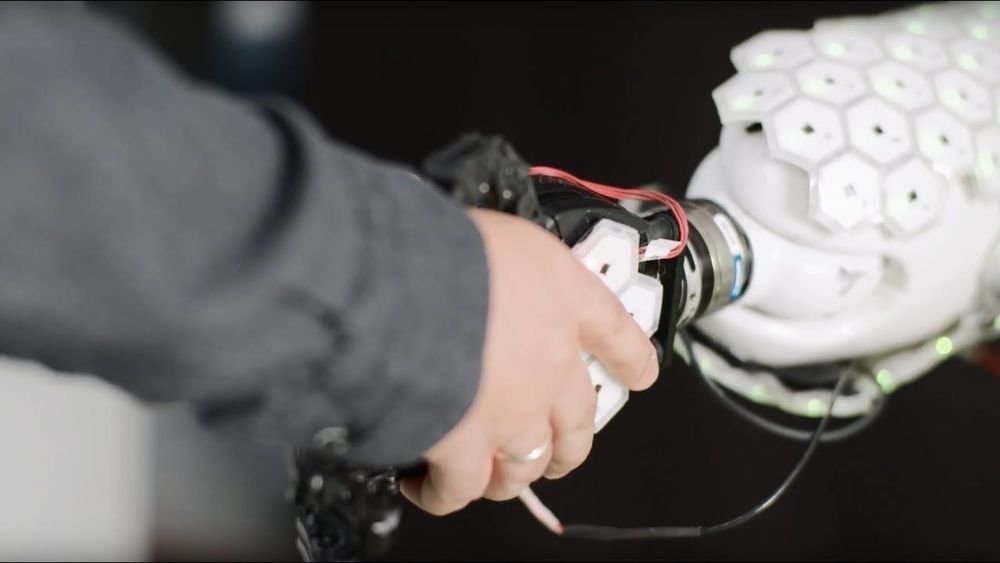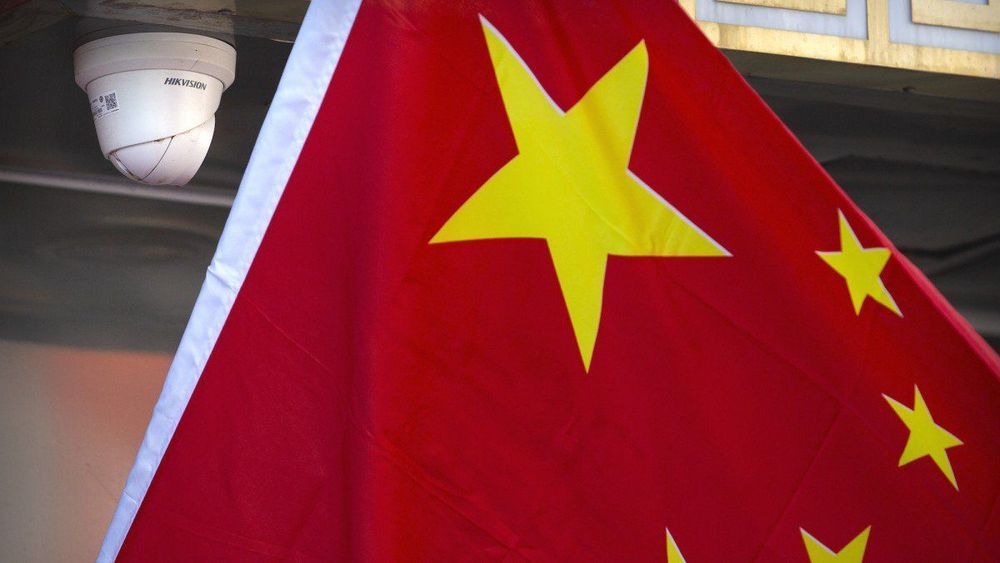Sensitive synthetic skin enables robots to sense their own bodies and surroundings—a crucial capability if they are to be in close contact with people. Inspired by human skin, a team at the Technical University of Munich (TUM) has developed a system combining artificial skin with control algorithms and used it to create the first autonomous humanoid robot with full-body artificial skin.
The artificial skin developed by Prof. Gordon Cheng and his team consists of hexagonal cells about the size of a two-euro coin (i.e. about one inch in diameter). Each is equipped with a microprocessor and sensors to detect contact, acceleration, proximity and temperature. Such artificial skin enables robots to perceive their surroundings in much greater detail and with more sensitivity. This not only helps them to move safely. It also makes them safer when operating near people and gives them the ability to anticipate and actively avoid accidents.
The skin cells themselves were developed around 10 years ago by Gordon Cheng, Professor of Cognitive Systems at TUM. But this invention only revealed its full potential when integrated into a sophisticated system as described in the latest issue of the journal Proceedings of the IEEE.








